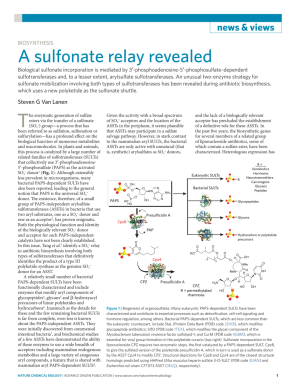
Principal Investigator
Microbiology
xtang@szbl.ac.cn
2020-PresentShenzhen Bay Laboratory Junior Principal Investigator
2018.09 - 2020Ginkgo Bioworks Research Scientist
2017.03 - 2018.08 J. Craig Venter & Scripps Institution of Oceanography Joint Postdoctoral Fellow
2013.11-2017.02 Scripps Institution of Oceanography & Skaggs School of Pharmacy and Pharmaceutical Sciences Postdoctoral Fellow
2009.12 - 2013.08University of Tübingen (German Excellence University) PhD
2006.09 - 2009.06Nanjing University of Technology MSc
2002.09 - 2006.06China Pharmaceutical University Bachelor
Genetically encoded organic molecules are the common chemical language that unites all life, from single cells to communities of organisms. As natural products, they are broadly applied in medicine, agriculture and nutrition. Our research interests are mainly to discover natural products from the marine bacteria and the human microbiota, decipher their biosynthetic enzymes, and interrogate their biological roles. We are using a combination of genetics, genomics, chemistry, biochemistry, and bioinformatics to answer basic biological questions and to develop new therapeutics.
Xiaoyu Tang is an Assistant Professor in the Institute of Chemical Biology at Shenzhen Bay Laboratory. Dr. Tang received his Ph.D. in Pharmaceutical Science from the Eberhard Karls University of Tübingen (Germany). Dr. Tang did his post-doctoral training with Prof. Bradley S. Moore at the Scripps Institution of Oceanography at UCSD and JCVI. Before joining SZBL, he was a Scientist at the leading synthetic biology company Ginkgo Bioworks in Boston. He is a recipient of the 2014 PHOENIX Pharmaceutics Science Award. Over the years, he has developed numerous genome mining techniques that are now standard in the biosynthetic community. His laboratory@SZBL employs a multidisciplinary approach to identify and characterize small molecules from microbes, with an emphasis on the marine and human associated bacteria. As of May 2021, Dr. Tang has published a total of 24 manuscripts, which, according to Google Scholar, have been cited about 570 times. He has been a young editorial board member for the journal Chinese Journal of Natural Medicines.

Highlighted in the Nature Chemical Biology News&Views "Biosynthesis: A sulfonate relay revealed"

ChemBioChem Cover Story, ChemBioChem Readers’ Choice 2019

Highlighted in the news of C&EN “Bacteria behind tooth decay make antibiotics that take out their competitors”
H. Zhang, X. Li, S. Huang, M. Cai, W. Shi, M. Liang, Y. Lin, J. Shen, M. Sui, Q. Lai, J. Dou, Z. Shao, X. Luo, Y. Ge*, X. Tang*. A semisynthesis platform for efficient production and exploration of didemnin-based drugs. Angew. Chem. Int. Ed., 2024, e202318784
H. Zou, Z. Hui, R.A. Shepherd, S. Zhao, Y. Wu, Z. Shen, C. Pang, S. Zhou, Z. Yu, J. Zhou, B.S. Moore, L.M. Sanchez, X. Tang*. Unveiling a CAAX protease-like protein involved in didemnin drug maturation and secretion. Advanced Science, 2024, 11(4), e2306044
Y. Zhang, G. Liao, M. Wang, Z. Zhang, L. Liu, Y. Song, D. Wang, T. Hao, J. Feng, B. Xia, Y. Wang, X. Tang*, Y. Chen*. Human-associated bacteria adopt an unusual route for synthesizing 3-acetylated tetramates for environmental adaptation. Microbiome, 2023, 11, 97
L. Hou, H. Tian, L. Wang, Z. E. Ferris, J. Wang, M. Cai, E. A. Older, M. R. K. Raja, D. Xue, W. Sun, P. Nagarkatti, M. Nagarkatti, H. Chen, D. Fan, X. Tang*, J. Li*. Identification and biosynthesis of pro-inflammatory sulfonolipids from an opportunistic pathogen Chryseobacterium gleum. ACS Chemical Biology 2022, 17(5), 1197–1206
H. Zhang, G. Liao, X. Luo*, X. Tang*. Harnessing nature’s biosynthetic capacity to facilitate total synthesis. National Science Review 2022, 9(10), nwac178